
The Tragedy of Romeo and Juliet, often shortened to Romeo and Juliet, is a tragedy written by William Shakespeare early in his career about the romance between two Italian youths from feuding families. It was among Shakespeare's most popular plays during his lifetime and, along with Hamlet, is one of his most frequently performed. Today, the title characters are regarded as archetypal young lovers.

Dame Dorothy Tutin, was an English actress of stage, film and television. For her work in the theatre, she won two Olivier Awards and two Evening Standard Awards for Best Actress. She was made a CBE in 1967 and a Dame (DBE) in 2000.
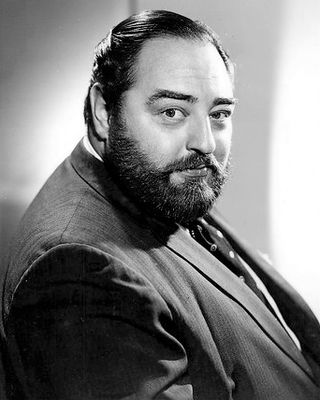
Charles Sebastian Thomas Cabot was a British actor. He is best remembered as the gentleman's gentleman Giles French in the CBS-TV sitcom Family Affair (1966–1971). He was also known for playing the Wazir in the film Kismet (1955) and Dr. Carl Hyatt in the CBS-TV series Checkmate (1960–1962).

Cecil André Mesritz, known professionally as André Morell, was an English actor. He appeared frequently in theatre, film and on television from the 1930s to the 1970s. His best known screen roles were as Professor Bernard Quatermass in the BBC Television serial Quatermass and the Pit (1958–59), and as Doctor Watson in the Hammer Film Productions version of The Hound of the Baskervilles (1959).

Laurence Naismith was an English actor. He made numerous film and television appearances, including starring roles in the musical films Scrooge (1970) and the children's ghost film The Amazing Mr. Blunden (1972). He also had memorable roles as Captain Edward Smith of the RMS Titanic in A Night to Remember (1958), the First Sea Lord in Sink the Bismarck! (1960), and Argus in Jason and the Argonauts (1963).

Marius Re Goring was an English stage and screen actor. He is best remembered for the four films he made with Powell & Pressburger, particularly as Conductor 71 in A Matter of Life and Death and as Julian Craster in The Red Shoes. He is also known for playing the titular role in the long-running TV drama series, The Expert. He regularly performed French and German roles, and was frequently cast in the latter because of his name, coupled with his red-gold hair and blue eyes. However, in a 1965 interview, he explained that he was not of German descent, stating that "Goring is a completely English name."

Juliet Capulet is the female protagonist in William Shakespeare's romantic tragedy Romeo and Juliet. A 13-year-old girl, Juliet is the only daughter of the patriarch of the House of Capulet. She falls in love with the male protagonist Romeo, a member of the House of Montague, with which the Capulets have a blood feud. The story has a long history that precedes Shakespeare himself.

John David Bennett was an English actor.
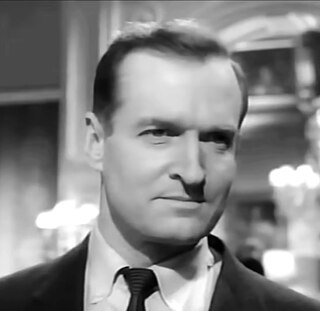
Geoffrey Toone was an English character actor and former matinee idol, born in Ireland. Most of his film roles after the 1930s were in supporting parts, usually as authority figures, though he did play the lead character in the Hammer Films production The Terror of the Tongs in 1961.

John Reginald Neville, CM OBE was an English actor and theatre director whose career spanned more than sixty years, he was renowned for his roles on both stage and screen in genres ranging from classical theatre to fantasy and science fiction.
John Woodvine is an English actor who has appeared in more than 70 theatre productions, as well as a similar number of television and film roles.
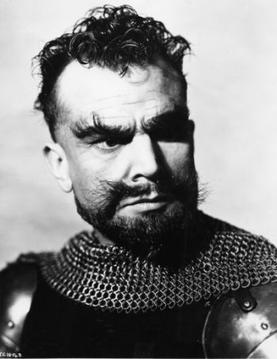
Esmond Penington Knight was an English actor. He had a successful stage and film career before World War II. For much of his later career Knight was half-blind. He had been badly wounded in 1941 while on active service on board HMS Prince of Wales when she fought the Bismarck at the Battle of the Denmark Strait, and remained totally blind for two years, though he later regained some sight in his right eye.

Alfred Burke was an English actor, perhaps best known for his portrayal of Frank Marker in the long running drama series Public Eye, which ran on television for ten years.
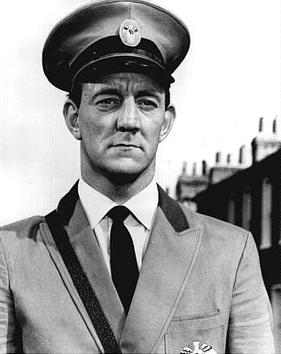
Bryan Pringle was an English character actor who appeared for several decades in television, film and theatre productions.

Dorothy Renée Ascherson, known professionally as Renée Asherson, was an English actress. Much of her theatrical career was spent in Shakespearean plays, appearing at such venues as the Old Vic, the Liverpool Playhouse, and the Westminster Theatre. Her first stage appearance was on 17 October 1935, aged 20, and her first major film appearance was in The Way Ahead (1944). Her last film appearance was in The Others (2001).

Charles Gray was an English actor and voice artist. Appearing in around 140 films and TV series, he was best known as the arch-villain Ernst Stavro Blofeld in the James Bond film Diamonds Are Forever; Dikko Henderson in a previous Bond film, You Only Live Twice; Sherlock Holmes's brother Mycroft Holmes in The Adventures of Sherlock Holmes; and The Criminologist in The Rocky Horror Picture Show.
Peter Francis Baldwin was an English actor. He was best known for his role as Derek Wilton in the British soap opera Coronation Street.
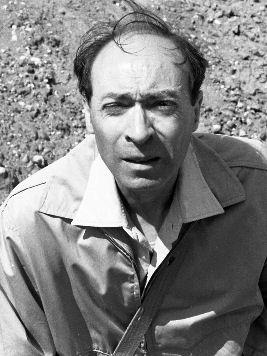
Cyril Leonard Shaps was an English actor of radio, television and film, with a career spanning over seven decades.
Geoffrey Michael Chater Robinson was an English film, television and stage actor. He appeared in the crime drama series Callan, Foyle's War and Midsomer Murders.
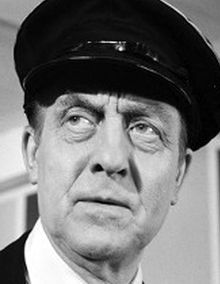
Frank Forsyth, sometimes credited as Frank Forsythe, was an English actor, active from the 1930s. He was born on 19 December 1905 in London, England. He appeared in several TV programmes, including Department S (1969), The Adventures of Black Beauty (1972) and Journey to the Unknown (1968), as well as numerous films. His film appearances include eight of the Carry On films. He died on 2 May 1984 in Poole, England.

















